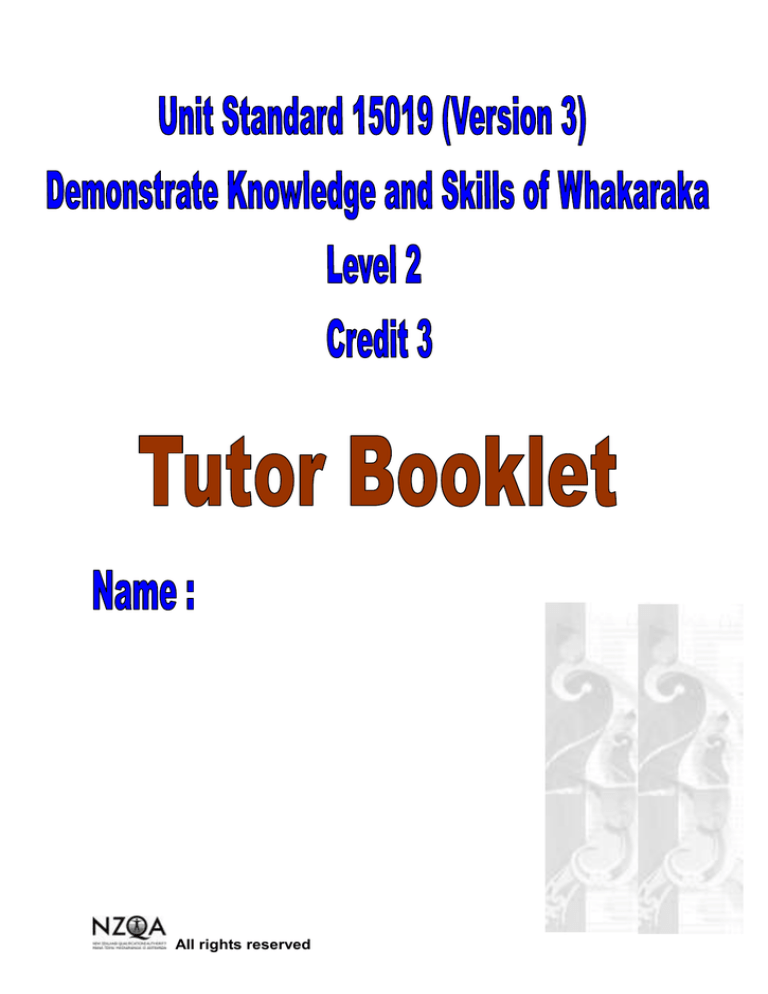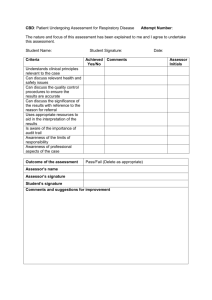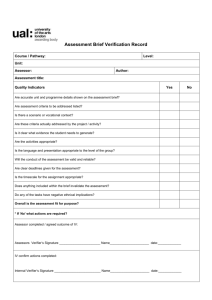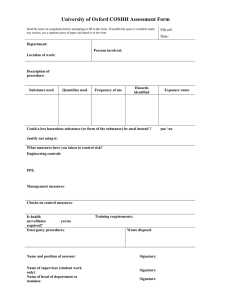
All rights reserved
UNIT STANDARD 13359
Unit Standard 15019 Version 3
DEMONSTRATE KNOWLEDGE & SKILLS OF WHAKARAKA
Level 2
Credit 3
TUTOR INFORMATION
Please remember that the focus is Māori Performance.
Therefore;
the most effective activities for assessment will be those that are practical or
performance based
written tests should be discouraged
assessments can occur in a range of contexts, e.g. school or marae, within the
classroom, practices or other learning contexts
kapa haka competitions can be used to assess the performance expectations of
this unit standard
local kapa experts may be used to assess candidates.
Tutor Resources
New Zealand Qualifications Authority Kapa Haka Videos (free resource to all
accredited Māori Performing Arts providers).
Audio Tapes – a good point of reference to access is your local Māori radio station
that will have an archival library of reference material.
Kapa Haka composers and tutors in your community.
Library resources e.g:
Ngata, A. - Ngā Mōteatea Anthology
Huata, N. – The rhythm and life of Poi
Karetu, H. – Haka: The dance of a noble people
Gardiner, W. – Haka: A living tradition
O’Connor, B. & Patterson, L. – He Whai: Old & new string figures from
Aotearoa New Zealand
Assessment Booklet – VERY IMPORTANT
The assessment schedule is used and completed by the assessor once all tasks have
been completed.
Student Booklet – VERY IMPORTANT
The student receives this booklet. It outlines important information for the student
including:
Assessment information
Assessment tasks
Other important information.
All rights reserved
Unit Standard 15019 Version 3
DEMONSTRATE KNOWLEDGE & SKILLS OF WHAKARAKA
Level 2
Credit 3
ASSESSMENT TASKS
Element 1:
Demonstrate knowledge of whakaraka.
Assessment Task 1:
This task assesses Performance Criteria 1.1:
1.1
Demonstration identifies items of whakaraka.
Range:
a minimum of one item from each of the following categories hand games, stick games, string games.
Task 1:
Present an oral, visual* or written explanation of the history and tikanga of one item
from each whakaraka category.
The presentation
the category that matches the researched item
the name of the chosen item
the composer
where the item comes from
when and why the item was composed
the words and translation of the item
the purpose of the item [if any]
other messages that this item may be addressing (if any).
*Note: a visual display may include but is not limited to power point presentation,
slides, video or poster presentation.
Verification of Oral, Written or Visual Research evidence to be signed by
Assessor
Verification Signature:
All rights reserved
Date:
Element 2:
Demonstrate the essential skills of whakaraka.
Range:
at least one item from each of the following
categories - hand games, stick games, string
games.
Assessment Task 2:
This task assesses Performance Criteria 2.1:
2.1
Demonstration incorporates iwi variation with regard to movement, voice, and
pronunciation.
Task 2:
Perform whakaraka from memory demonstrating appropriate movement, voice and
pronunciation.
Key factors to consider:
ONE item from each whakaraka category are performed
The items are performed from memory.
Kua TIKA te tū me te kori o te tinana, te mita o te reo, te whakahua o ngā kupu
me te hā.
Verification of Performance to be signed by Assessor
Verification Signature:
All rights reserved
Date:
ELEMENT 2 – TUTOR CHECKLIST
Copy three checklists per student one for each item being assessed and attach to assessment schedule.
Evidence Statement
Essential skills demonstrated
Assessor comments
Judgement statements
Whakaraka is performed
Indicate item one from
each of the whakaraka
category.
Hand games
Stick games
String games
Body movement:
Descriptions required to judge:
Performs with confidence
Actions performed with conviction
Performance incorporates iwi variations
confidence
conviction
iwi variations
Voice
Voice
Sings/chants in unison or harmony, as
appropriate
Sings with expression
Sings in a rhythmic style, maintains timing
Hā (tone colour) reflects te reo,
pronunciation is correct
Intonation closely matched
unison/harmony
expression
exactness of timing
correctness of pronunciation
match of intonation
Lyrics
Amount that is memorised
Lyrics
Waiata is memorised
Overall
Ihi, wehi, wana
Performs as rehearsed
Follows kaupapa, tikanga, and
Overall
Ihi, wehi, wana
Performs as rehearsed
Follows kaupapa, tikanga, and wairua
wairua with dignity and respect
with dignity and respect
Perform 1 item from each of the
categories.
Verification Signature:
All rights reserved
Date:
NIT Unit Standard 15019 Version3
DEMONSTRATE KNOWLEDGE & SKILLS OF WHAKARAKA
Level 2
Credit 3
ASSESSMENT SCHEDULE
Please note: The following table is not a complete assessment schedule. It is a guide that provides an outline of some
requirements for evidence and judgement for the tasks that have been developed. Providers are encouraged to
design their own model answers as evidence statements and to give the appropriate judgement statements to assist
the assessor to decide learner competence. Practical components will also require assessor verification.
UNIT STANDARD
INFORMATION
EVIDENCE
[The answer expected]
JUDGEMENT
STATEMENT
C/NC
[Defines the standard to be
achieved]
TASK 1
Element 1
Performance Criteria 1.1
Oral, visual* or written research of
ONE item from each category of
whakaraka. i.e THREE
whakaraka items.
The categories of Whakaraka are:
hand games
stick games
string games
Oral, visual or written
research will have the
following components:
the category that matches
the researched item
the name of the chosen
item
the composer
where the item comes from
when and why the item
was composed
the words and translation
of the item
the purpose of the item [if
any]
other messages that this
item may be addressing (if
any).
TASK 2
Element 2
Performance Criteria 2.1
THREE whakaraka items are
performed - ONE from each
whakaraka category.
The items are performed
from memory.
Kua TIKA te tū me te kori
o te tinana, te mita o te
reo, te whakahua o ngā
kupu me te hā.
Print candidate’s name
C = Credit
NC = No Credit
_____________________________________________
Candidate’s signature
_____________________________________________
Assessor’s signature__________________________________________________
Start date _________________
All rights reserved
Completion date ____________________
All rights reserved
Unit Standard 15019 Version 3
DEMONSTRATE KNOWLEDGE & SKILLS OF WHAKARAKA
Level 2
Credit 3
ASSESSMENT INFORMATION
By the end of this unit, you will be required to complete the following tasks:
Task 1:
Research and present an oral, visual* or written explanation of the history and tikanga
of one item from each whakaraka category.
*Note: a visual display may include but is not limited to power point presentation,
slides, video or poster presentation.
Task 2:
Perform whakaraka from memory demonstrating appropriate movement, voice and
pronunciation.
ONE item is performed from each category of whakaraka i.e THREE in total
The items are performed from memory.
Kua TIKA te tū me te kori o te tinana, te mita o te reo, te whakahua o ngā kupu me
te hā.
Verification of Performance to be signed by Assessor
Verification Signature:
IMPORTANT INFORMATION
1.
Each of the above tasks must be completed to pass this unit standard.
2.
You will not be expected to achieve performance competency, as this is a
Level 3 requirement.
3.
The 3 credits of 15019 equate to approximately 30 hours of learning to complete
this unit standard
4.
The Assessment Tasks can be presented in many different ways. Appropriate
and relevant ideas can be discussed with your tutor to ensure unit standard
requirements are complied with.
5.
Please ensure that you have a clear understanding of the Assessment Process
before you begin this unit standard. Remember that there are no silly questions.
All rights reserved
ACTIVITY 1
PRESENT A ORAL, VISUAL* OR WRITTEN EXPLANATION OF THE
HISTORY AND TIKANGA OF ONE ITEM FROM EACH WHAKARAKA
CATEGORY.
Element 1:
Demonstrate knowledge of whakaraka.
This activity assesses Performance Criteria 1.1:
1.1
Demonstration identifies items of whakaraka.
Range:
a minimum of one item from each of the following categories - hand
games, stick games, string games.
Activity 1:
Research and present an oral, visual* or written explanation of the history and tikanga
of one item from each whakaraka category.
*Note: a visual display may include but is not limited to power point presentation,
slides, video or poster presentation.
The Glossary in this unit standard explains that history refers to the reason for the
composition, the composer and when the item was composed. Tikanga refers to the
meaning, values and Maori World View
You are required to choose ONE item from each whakaraka category to research.
The following requirements MUST be included:
History
What is the name of the item?
Why was the item composed?
When was the item composed?
Tikanga
What are the words and translation of the item?
What is the item’s purpose? e.g promotion of te reo, anti smoking message etc
What, if any, are the other messages that this item addressing?
Verification of Oral, Written or Visual Research evidence to be signed by
Assessor
Verification Signature:
All rights reserved
Date:
ACTIVITY 2
PERFORM WHAKARAKA FROM MEMORY DEMONSTRATING
APPROPRIATE MOVEMENT, VOICE AND PRONUNCIATION.
Element 2:
Demonstrate the essential skills of whakaraka.
Range:
at least one item from each of the following
categories - hand games, stick games, string
games.
This activity assesses Performance Criteria 2.1:
2.1
Demonstration incorporates iwi variation with regard to movement, voice, and
pronunciation.
Activity 2:
Perform whakaraka from memory demonstrating appropriate movement, voice and
pronunciation.
Key factors to consider:
ONE item from each whakaraka category are performed
the items are performed from memory
the performed items demonstrates APPROPRIATE movement, voice and
pronunciation.
The whakaraka featured in the kapa haka (WHAKARAKA) video gives you an accurate
performance standard expected for Level 3 – one level higher than this unit standard.
All rights reserved
All rights reserved
Unit Standard 15019 Version 3
DEMONSTRATE KNOWLEDGE & SKILLS OF WHAKARAKA
Level 2
Credit 3
ASSESSMENT TASKS
Element 1:
Demonstrate knowledge of whakaraka.
Assessment Task 1:
This task assesses Performance Criteria 1.1:
1.1
Demonstration identifies items of whakaraka.
Range:
a minimum of one item from each of the following categories hand games, stick games, string games.
Task 1:
Present an oral, visual* or written explanation of the history and tikanga of one item
from each whakaraka category.
The presentation must include all the following information.
the category that matches the researched item
the name of the chosen item
the composer
where the item comes from
when and why the item was composed
the words and translation of the item
the purpose of the item [if any]
other messages that this item may be addressing (if any).
*Note: a visual display may include but is not limited to power point presentation,
slides, video or poster presentation.
Verification of Oral, Written or Visual Research evidence to be signed by
Assessor
Verification Signature:
All rights reserved
Date:
Element 2:
Demonstrate the essential skills of whakaraka.
Range:
at least one item from each of the following
categories - hand games, stick games, string
games.
Assessment Task 2:
This task assesses Performance Criteria 2.1:
2.1
Demonstration incorporates iwi variation with regard to movement, voice, and
pronunciation.
Task 2:
Perform whakaraka from memory demonstrating appropriate movement, voice and
pronunciation.
Key factors to consider:
ONE item from each whakaraka category are performed
the items are performed from memory
the performed items demonstrates APPROPRIATE movement, voice and
pronunciation.
Verification of Performance to be signed by Assessor
Verification Signature:
All rights reserved
Date:
UNIT STANDARD 13359 – LEVEL 2 : CREDIT 6
Unit Standard 15019 Version3
DEMONSTRATE KNOWLEDGE & SKILLS OF WHAKARAKA
Level 2
Credit 3
ASSESSMENT SCHEDULE
Please note: The following table is not a complete assessment schedule. It is a guide that provides an outline of some
requirements for evidence and judgement for the tasks that have been developed. Providers are encouraged to
design their own model answers as evidence statements and to give the appropriate judgement statements to assist
the assessor to decide learner competence. Practical components will also require assessor verification.
UNIT STANDARD
INFORMATION
EVIDENCE
[The answer expected]
JUDGEMENT
STATEMENT
C/NC
[Defines the standard to be
achieved]
TASK 1
Element 1
Performance Criteria 1.1
Oral, visual* or written research of
ONE item from each category of
whakaraka. i.e THREE
whakaraka items.
The categories of Whakaraka are:
hand games
stick games
string games
Oral, visual or written research
will have the following
components:
the category that matches
the researched item
the name of the chosen item
the composer
where the item comes from
when and why the item was
composed
the words and translation of
the item
the purpose of the item [if
any]
other messages that this
item may be addressing (if
any).
TASK 2
Element 2
Performance Criteria 2.1
THREE whakaraka items are
performed - ONE from each
whakaraka category.
Candidate performs items
from memory.
Candidate displays
APPROPRIATE movement,
voice & pronunciation.
Print candidate’s name
C = Credit
NC = No Credit
_____________________________________________
Candidate’s signature
_____________________________________________
Assessor’s signature__________________________________________________
Start date _________________
All rights reserved
Completion date ____________________



